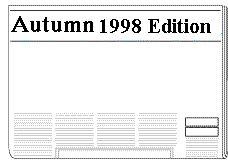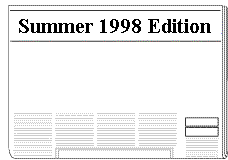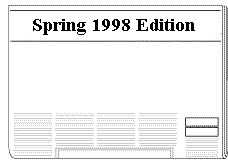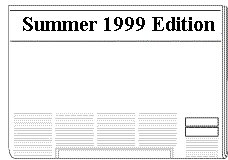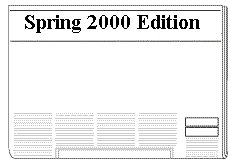Brain
Injury Society was created to offer a quick response service to all brain
injured (whether acquired or traumatic, recovered and recovering) individuals.
Acquired and traumatic brain injury have overlapping symptoms yet are very
distinct from each other. Acquired brain injury is an internal disorder caused
by neuro-organic malfunctions. Traumatic brain injuries are externally caused,
as in care accidents, sports injuries and physical assaults.
Brain Injury Society was
incorporated on December 18th, 1997 as Not-For-Profit Organization
and was approved by the IRS as a a 501(c)(3) corporation. When fully operational
Brain Injury Society will provide the following services for all acquired
and traumatic brain injured recovering and recovered individuals.
Brain Injury Society,
in close association with the participating hospitals, will be assisting with
counseling and guidance throughout the recovery process.
Brain Injury Society will
assist the families in understanding their physician's diagnosis and recommended
treatment for all brain injured patients. Alternative courses and latest advances
will be brought into what is often a split second decision making process.
Often there is no time for families to
research a second opinion. The parents of mild to the severely brain-injured
child (whatever the age) must know about viable surgical options and/or alternatives.
Brain
Injury Society satisfies a void which has been recognized for years. There
are no alternatives. The idea has been embraced by the medical community and
has been given its overwhelming support. Brain Injury Society services include
information on all phases of patient after care.
Brain
Injury Society needs a computer system to be built as a prototype to first
serve the New York City, then to expand when the systems design goes online
throughout the United States of America and globally. Even now, every week,
phone calls and E-mail from recovering brain injured individuals and their
families around the world log on to get help with their helplessness and frustration
in their quest for data.
As Brain
Injury Society expands, we will have an advisory board of business leaders
to provide immediate strategies for obtaining needed funding on a regular
basis.
QUESTIONS
MOST OFTEN ASKED
- What
is Acquired Brain Injury?
- An
internal disturbance of the brain by physiological changes such as a
anoxia, a growth, certain diseases aneurysm and/or removal of a portion
of the brain.
- What
is Traumatic Brain Injury?
- An
insult to the brain caused by preventable or unavoidable rapid external
movements causing deceleration and acceleration.
- What
are causes of Traumatic Brain Injury?
- Many
stem from accidents and assaults. Accidents that cause traumatic brain
injury are motor vehicle incidents, bullet wounds, physical assaults
such as battery, physical battering, shaken baby syndrome, domestic
violence, falls, sports and recreational injuries. Consequences may
include; cognitive, speech, hearing, taste, smell, balance (vestibular),
vision, physical mobility dysfunctions, and psychosocial, behavioral
and emotional impairments.
- How
can a family cope?
- Through
a correct rehabilitation therapy program, patience and understanding.
- What
rehabilitations are available to the Traumatic Brain Injured Individual?
- Many
New York City and Downstate hospitals offer ABI and TBI programs, which
are covered by most insurance plans. The brain injury program includes:
psychological, cognitive, physical, vestibular, vision, vocational,
speech, occupational, recreational, music therapies and support groups
for the recovering brain injured individual and their families.
BACKGROUND
ON ACQUIRED AND TRAUMATIC BRAIN INJURY
Each year in New York City and Downstate New York approximately
62,000 people are affected with acquired and traumatic brain injuries. Acquired
and traumatic brain injury often times manifest similar symptoms, but they
are very distinct from each other, in terms of treatment and prognosis. Acquired
brain injury (ABI) is an internal disorder caused by neuro-organic malfunctions;
e.g.; strokes. Traumatic brain injury (TBI) is externally caused, as in car
accidents, sports injuries and physical assaults. At the onset of ABI or TBI,
a person is overwhelmed with an inability to cope with life. There is always
an area of dysfunction that must be overcome, however, the strategy to do
so must be learned. A significant ABI or TBI number of these individuals will
no longer have the ability to function in the real world again. Brain injuries
last throughout life. The physiological problem of acquired and traumatic
brain injury impinges upon the entire person. Generally misunderstood, these
symptoms include: impaired physical coordination; visual and spatial impairment;
short-term memory loss; cognitive dysfunction; inability to learn new things
or remember old tasks. Daily activities such as remembering an address or
phone number can be unreliable in recall. Crowds of people or sudden loud
noises can cause confusion and loss of equilibrium. Even though acquired and
traumatic brain injuries are lifetime disabilities, timely and correct treatment,
have been proven to produce compensatory skills for the affected areas. Without
such treatment the ability to function in life is often needlessly impaired.
There are proven and effective remedies to assist the acquired and traumatic
brain injured individual. The goal is to return to a better and productive
life by using the "new" abilities of the "new" person
with realistic goals in place. People have difficulties accessing information
necessary to help themselves or their families face the problems associated
with these injuries. The need for a referral service has long been identified
but has never been realized until now.
THE PROBLEMS
Misdiagnosis
These approximately 62,000 cases do not take into account those individuals
who are diagnosed incorrectly. This second category includes the effects of
long-term misdiagnosis or undiagnosed traumatic brain injury. Traumatic brain
injuries always assault the physiological and psychological senses. When there
is a misdiagnosis the situation is compounded causing needless intense suffering.
Therefore, patients either, cannot function to their expected capacity in
their jobs or have had their family lives disrupted or destroyed. Plus, there
are those with genetic disorders such as epilepsy who endure a traumatic brain
injury from a seizure, or persons with Down Syndrome who sustain a traumatic
brain injury from an automobile accident, which compounds their problems.
Lack
of Coverage
Insurance coverage has been drastically cut for this type of injury. Cognitive
remediation, vestibular therapy, speech, physical therapy, occupational therapy,
vision therapy, psychosocial therapy, vocational therapy and psychotherapy
are needed on a regular basis. It is not unusual for the initial treatment
to require patient visits of two to three times a week, to be followed by
monthly, quarterly, semi-annual and then annual visits in order to encourage
the acquired and traumatic brain injured person to their highest "level
of functionality." In this way, the learned strategies are reinforced
and new problems are addressed, as they arise, can then be handled. Insurance
companies are not dealing with ABI and TBI as long term or permanent disability
with must be monitored. The population afflicted with acquired and traumatic
brain injuries negatively impacts on the economy. The loss of revenues from
diminished employee productivity is substantial and represents billions of
dollars each year. Many employers and co-workers cannot comprehend the recovery
process or the impact that a brain injury makes. They will sometimes choose
to not utilize their own corporate flexibility to create noncompetitive programs
and instead dismiss the individual as lazy and unproductive. They also do
not push insurance companies to provide necessary services.
Keeping
Up With New Information
Patients and their families must be kept abreast of new information, as it
becomes available through networking. Affiliations with acquired and traumatic
brain injured people must be encouraged to develop new and better strategies.
It is essential to keep the brain-injured person connected to treatment. Regression
is stemmed by keeping the strategies learned in place and by nurturing the
recovering patient to develop and restore more skills that are complex. No
one can do this alone.




